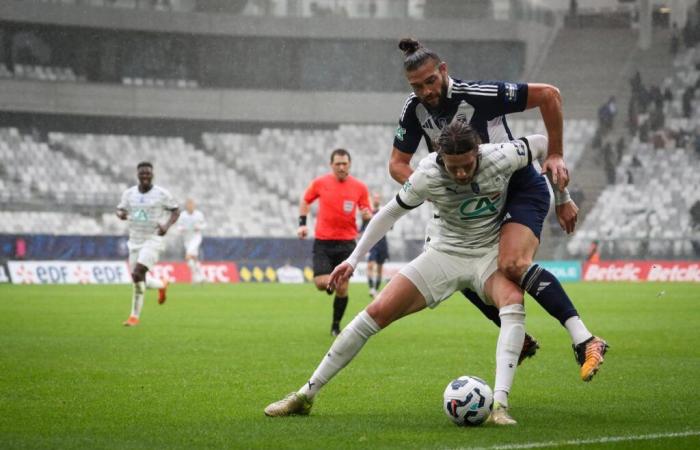
Did you imagine that the standoff between SBA and the Metropolis could lead to a probable bankruptcy filing for the manager?
This was part of the threats brandished for several years by SBA which is struggling and struggling to find an economic model due to the conditions of the PPP (public – private partnership). I found it hard to believe it because of the entities that own SBA (Vinci and Fayat, Editor’s note), financially solid and very established in the territory. I saw this more as a negotiating weapon than as a threat that could materialize.
Are you surprised not to see the Metropolis give in to review the PPP when the threat is now tangible?
No. These PPP contracts are sometimes lose-lose-lose contracts: lose for the club, the community and the operator. But there, the Regional Chamber of Auditors and the Court of Auditors emphasized that it was one of the most protective for the community. Not that it makes money, on the contrary, but unlike Marseille, Nice or Lille, Bordeaux Métropole is quite protected. I couldn’t imagine him wanting to revisit a contract signed until 2043 and that no one was forced to sign in the first place. The Girondins are those who suffered the most, but Vinci, Fayat, the community did it consciously. If the PPP is defeated, the Metropolis would be the most bothered because it would recover the stadium at least temporarily under management and that is not its business. She had no interest in negotiating.
Is the situation of the Girondins a smokescreen to justify filing for bankruptcy?
SBA is affected in the sense that the absence of a resident club would leave a gaping hole in the programming. The current situation of the Girondins seriously complicates the marketing of the naming contract (the current one ends in July, Editor’s note): we are no longer a club with the exposure of Ligue 1 and the European Cup, but in an anonymous National 2. SBA used this argument to increase its pressure as they continued to charge fees to the Girondins and the biggest impact was suffered by the Metropolis. It is very likely that she will never see the full 20 million euros that the club owes her.
In the event of SBA filing for bankruptcy, there are three scenarios: going into receivership, liquidation or receivership then liquidation. What is your outlook?
I would be surprised if they went straight to liquidation, which would immediately bring down the PPP. We remain in a negotiation between companies and a community. As for the Girondins, a recovery process would allow the opening of negotiations to clear debts and perhaps find new terms of collaboration. It will depend on everyone’s position. For the Metropolis, if the conditions of the PPP are degraded, it will be necessary politically to assume that the stadium becomes even more of a burden on public finances as the municipal elections approach (March 2026, Editor’s note).
In the event of judicial recovery, do you imagine a possible takeover of SBA?
-Under the current conditions of the PPP, that would surprise me. Either SBA remains with new financial conditions, or we will reach a liquidation. This second scenario would completely change the situation with a stadium and its operation coming into the hands of the Metropolis. This could then become an element that counts in relation to the situation of the Girondins even if it remains precarious. For a possible buyer of the club, the end of the PPP would be interesting because the current framework is very restrictive.
Would a liquidation open up more easily the possibility of a purchase of the stadium or of management being taken over by the Girondins?
To buy the stadium, the community must first be a seller. Unlike the advertising effects, it is not that simple: there are administrative procedures, you need a buyer capable of buying it, investing in its maintenance, upkeep and operating costs. If the Girondins come out of this and are bought out, it will depend on the power of the shareholders and their ability to buy back a stadium that will not be sold off. An evaluation will need to be carried out by the Estates.
The other solution is that the operation of the stadium is put back on the market. It will no longer be understandable for a buyer that the Girondins become operators, just as Paris SG operates the Parc des Princes by being quasi-owners with the Occupation Agreement. The last solution is that a company whose business is the operation of sports venues takes over management within the framework of an agreement with the Metropolis. The Girondins would be tenants again.
Is it really imaginable to see the Girondins operating in N2, if the buyer is not a specialist in the sector?
It would actually be complicated. Afterwards, if he has a desire to settle down over the long term, with a realistic project, a buyer with solid financial backing can hope to return to professional level in a relatively short time, 3 to 5 years. And accept the fact that from this perspective, you have to exploit your stadium and have to take losses first.
Could GL Events, which has entered into exclusive negotiations with the State for the operation of the Stade de France, be interested?
It’s one of the companies that manage stadiums, including Lagardère and Live Nation. The Stade de France is special because it does not have a resident club, but resident Federations (football and Rugby, Editor’s note). They put a lot of pressure on GL Events because they find the conditions offered unfavorable. A stadium in Bordeaux without a resident club, with the Top 14 semi-finals every three or four years, once every 15 years a Rugby World Cup and once every 100 years the Olympic Games, it’s complicated . Three concerts will not provide balance. Companies must also find a strategic interest in the territory, as I am convinced that Vinci and Fayat did.





